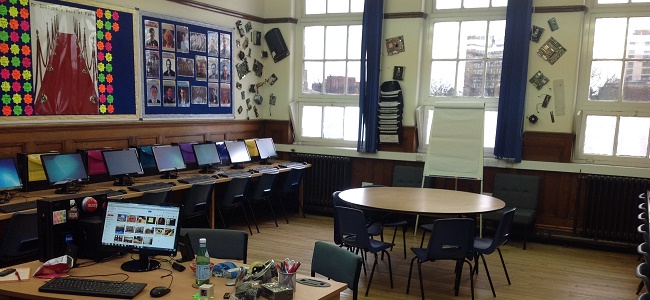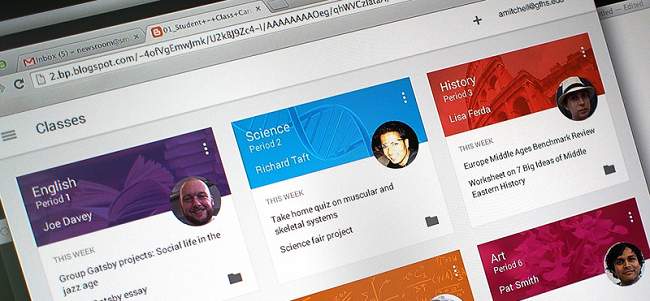
Award-winning teacher Adam Speight is a Middle Leader in a secondary school in South Wales and also works as an FE lecturer specialising in ICT and Computer Science. Aside from Adam's teaching commitments he also runs his own education consultancy business - Mr Speight Consultancy and since qualifying as a teacher in 2011, he has worked in both Wales and England in the state and independent sectors in a variety of roles. He is always keen to share his ideas and is a frequent educational writer and speaker. Adam is always looking for new, innovative teaching ideas, so that no learner ever gets left behind.
‘Hello World’ is perhaps the most famous computer phrase in the world, well, for programmers at least.
In an ever-changing and turbulent climate of expectations in education, the demands on educators is at a premium; a premium which is quickly becoming unsustainable. Many teachers, who are good at and passionate about their jobs, feel unable to cope with the changes and demands being placed upon them. Many schools have tried to introduce various initiatives to address teacher wellbeing, such as wellbeing-centric days, meditation activities, away days, and so on. Each of these initiatives, even with the best intentions, have no real-long term impact, and that is why the key to teacher wellbeing rests with middle leaders.
How many hours do you spend online? This was a classic question that, not so long ago, was at the heart of any e-safety lessons which took place in a school environment. This question is now awfully outdated because, as a society, we live in an interconnected world whereby we are always at some point in our day connected to this thing we call the Internet. This change in society has progressed at a rate quicker than technology has perhaps progressed, and these changes pose great difficulties for young people as to how they become part of this digital world. For us as educators, we have a fundamental role to play with how we help young people to embrace this digital world in a safe and secure manner.
Whatever education setting you work in, the word “marking” will have a different meaning for you. For a lot of people reading this article, “marking” is the albatross of their teaching career; the one thing which can really impact upon a person’s well-being and, no matter how much we might loathe it, a fundamental part of our jobs.
Learning how to become a teacher is just like learning how to drive a car. This is because when you learn to drive a car someone is always with you. Once you pass your test you are on your own, and this analogy is very similar to teaching, whereby once you pass the course you have been studying the door closes and you are now the teacher. When this happens you are given full responsibility for a class, and you are therefore accountable for both their learning and progress.
In the construction industry, the foundations of a building are considered to be the important ingredients which are needed in order to allow a structure to fully develop. Within teaching, the foundations of a good lesson are equally as important, and in my classroom the main ingredients which make up these foundations revolve around a concept which is commonly known as DIRT time.
Pastoral care is one of the most important duties a teacher can have within a school. As form tutors, we are given the most amount of time in which we can make a personal difference to a pupil without having to worry about the demands of the subject we teach. So, what does good pastoral care looks like, and what can we as educators do in order to ensure all pupils receive an above-standard level of care across the board?
Up and down the country, ICT teachers are nervously preparing themselves to make the transition from into teaching a subject which is known as ‘Computer Science’. What school leaders must realise when making this change is that Computer Science is a world apart from ICT. Teachers will need time to re-examine the pedagogy they use to ensure they deliver Computer Science lessons that are factually correct – and most importantly – craft classes that engage all learners in the room.
Is the traditional classroom setting too archaic? Computer Science teacher Adam Speight looks at how he’s designed his Kings Monkton School classroom with progressive learning in mind.

The traditional model of what a secondary school looks like from the outside is diminishing all the time. If you look at any new schools which are being built you will see that vast amounts of money are being spent on how they look cosmetically-speaking. However, look inside them and you’ll see the classrooms within look very much the same as those found within traditional school buildings. This is because these classrooms are normally designed so that the desks are arranged in long lines and the teaching experience is very much teacher-led. This is a big problem, because if learners are to be fully engaged within a learning environment, then the learning environment must be designed in a way which suits them and enhances both teaching and learning.
Plenty of teachers use Google apps in their classrooms, but is Google Classroom as widely used as it should be? Kings Monkton Private School teachers Adam Speight and Fiona Thomas explain how it’s been innovating their classroom this year.

In 2006 Google introduced a product known as Google Apps for Education to the world. This product became a game changer, as schools no longer had to stick with using the traditional Microsoft Office Suite; there was now a free variable alternative product available to them. Zoom forward to 2014, and Google have once again transformed the world of Education. This latest initiative comes in the format of a virtual learning environment (VLE), and is known as Google Classroom. Furthermore, it is free to anyone using Google Apps for Education. This product weaves together both Google Drive and Gmail, so it is a tool which helps teachers organise classes, provide feedback, save time and improve organisation so that the learning experience is fully enhanced.
A student’s behaviour in the classroom can be determined by a whole host of different factors, and their relationship with you as their classroom teacher is fundamentally the most important factor. However, in order to get good behaviour in a classroom with an individual, a lot more is needed than just sanctions and high expectations. This is where positive behaviour for learning comes in to play.

A community-driven platform for showcasing the latest innovations and voices in schools
Pioneer House
North Road
Ellesmere Port
CH65 1AD
United Kingdom